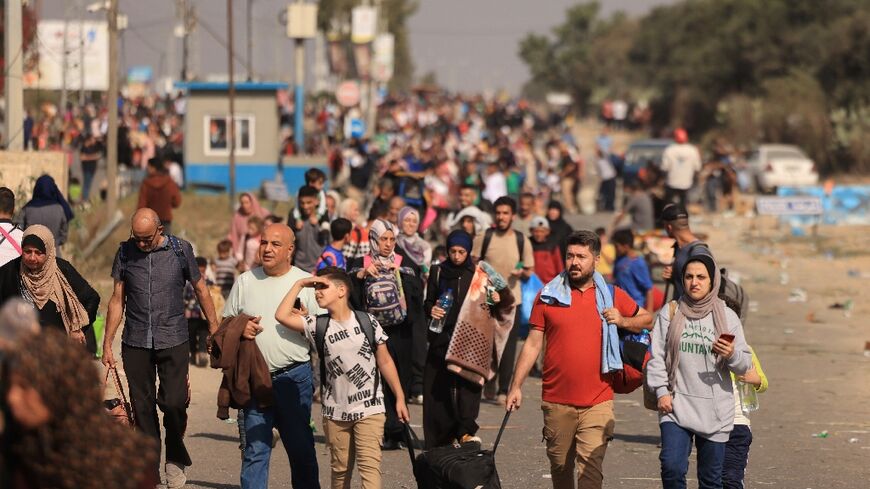Israel pauses 'step in the right direction', says Biden

Israel has agreed to humanitarian "pauses" in its offensive on Hamas in Gaza after pressure from the United States, President Joe Biden said on Thursday.
Biden said they were a "step in the right direction" that would help civilians flee the fighting and get more aid into stricken areas.
The White House said there would be daily, four-hour pauses in northern Gaza, with warning given three hours beforehand.
Biden has been pushing Israeli Prime Minister Benjamin Netanyahu for longer breaks in the fighting after more than a month of war sparked by the October 7 attacks by Hamas.
"For weeks, I've been speaking with Israel’s leaders about the importance of humanitarian pauses," Biden said on X, formerly Twitter.
"As of today, there will be two humanitarian passages that will allow people to flee hostile areas in Gaza. And they’ve already enabled thousands to reach safety."
He added: "These pauses will help get civilians to safer areas away from active fighting. They are a step in the right direction."
White House National Security Council spokesman John Kirby had previously confirmed that there would be humanitarian pauses and corridors for civilians out of Gaza.
"Israel will begin to implement four-hour pauses in areas of northern Gaza each day, with an announcement to be made three hours beforehand," Kirby told reporters.
A senior US administration official said a deal for the measures was sealed during a visit to Israel by Secretary of State Antony Blinken on Friday, followed by days of sorting out details.
But Israeli military spokesman Richard Hecht appeared to downplay the pauses.
"It's not a shift," he told reporters. "These are tactical local pauses for humanitarian aid, which are limited in time and area."
- 'No possibility' -
Fighting has raged since gunmen from the Islamist group Hamas poured over the Gaza border with Israel and, according to Israeli officials, killed 1,400 people and seized about 240 hostages in the worst attack in the country's history.
Vowing to destroy Hamas, Israel retaliated with an aerial bombing and ground offensive that the health ministry in the Hamas-run Gaza Strip says has killed more than 10,800 people, many of them children.
The UN estimates some 1.5 million people were already seeking safety in southern Gaza.
International calls for a ceasefire have mounted, as have protests, including one at the weekend which targeted the White House.
However, Biden ruled out a longer truce for now.
"None. No possibility," Biden told reporters at the White House when asked about the chances of a ceasefire.
He said he was "still optimistic" about freeing hostages -- including the around 10 US citizens held in Gaza. "We're not going to stop until we get them out."
He later confirmed that in a call with Netanyahu that "I've asked for a pause longer than three days." When asked if he was frustrated with Netanyahu, he said, "it’s taken a little longer than I hoped."
Biden has firmly stood by key ally Israel since the attacks, visiting Israel in October and saying that Hamas cannot be allowed to remain in control of Gaza.
But he has also called on Israel to obey the "laws of war," avoid civilian casualties, let in humanitarian aid and work on getting out the hostages.
Privately Washington has been putting pressure on Israel to rein in its offensive and to allow pauses in the fighting. This has met with Israeli resistance, particularly with Israel not wishing to give any appearance of weakness.
Biden has meanwhile warned Iran and its ally Hezbollah against widening the conflict, but repeated attacks on US forces by Tehran's proxies in recent weeks have raised tensions.
Asked why US warplanes had carried out fresh strikes on an Iran-linked weapons facility in eastern Syria on Wednesday, Biden said "because they struck us" and added that US forces would strike again "if we have to."






